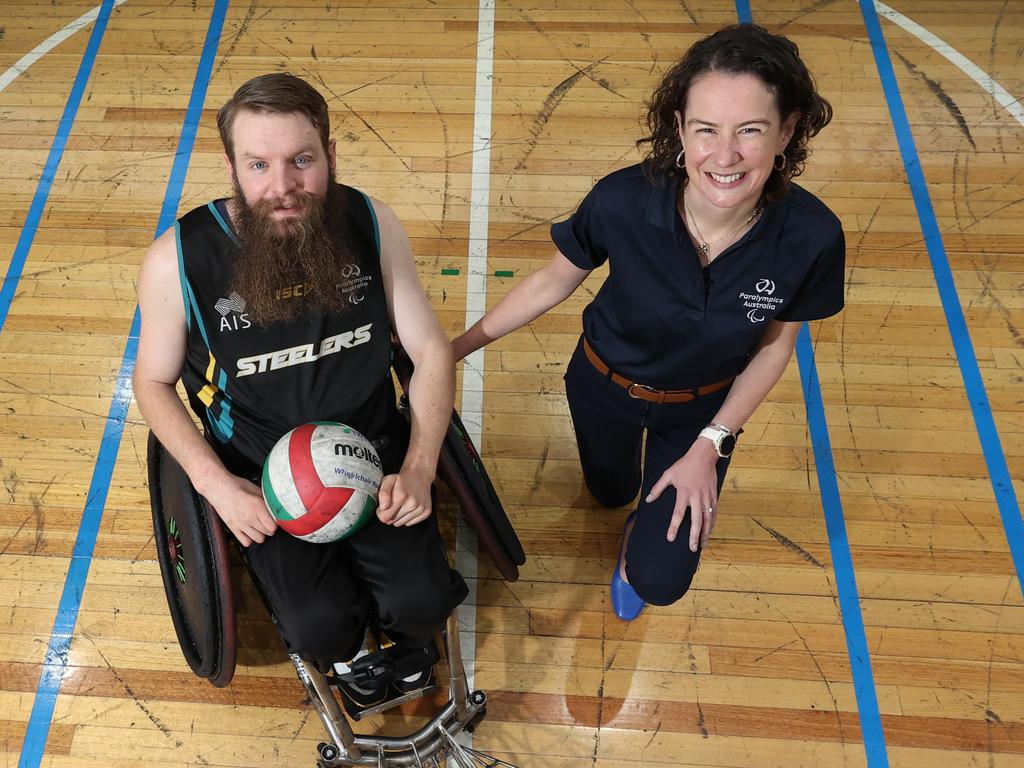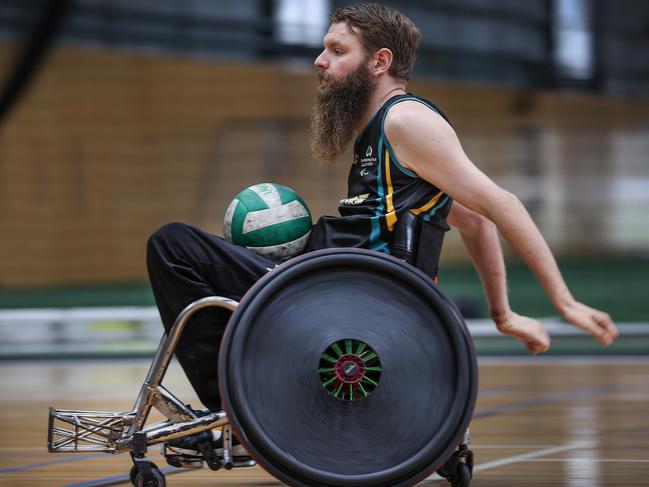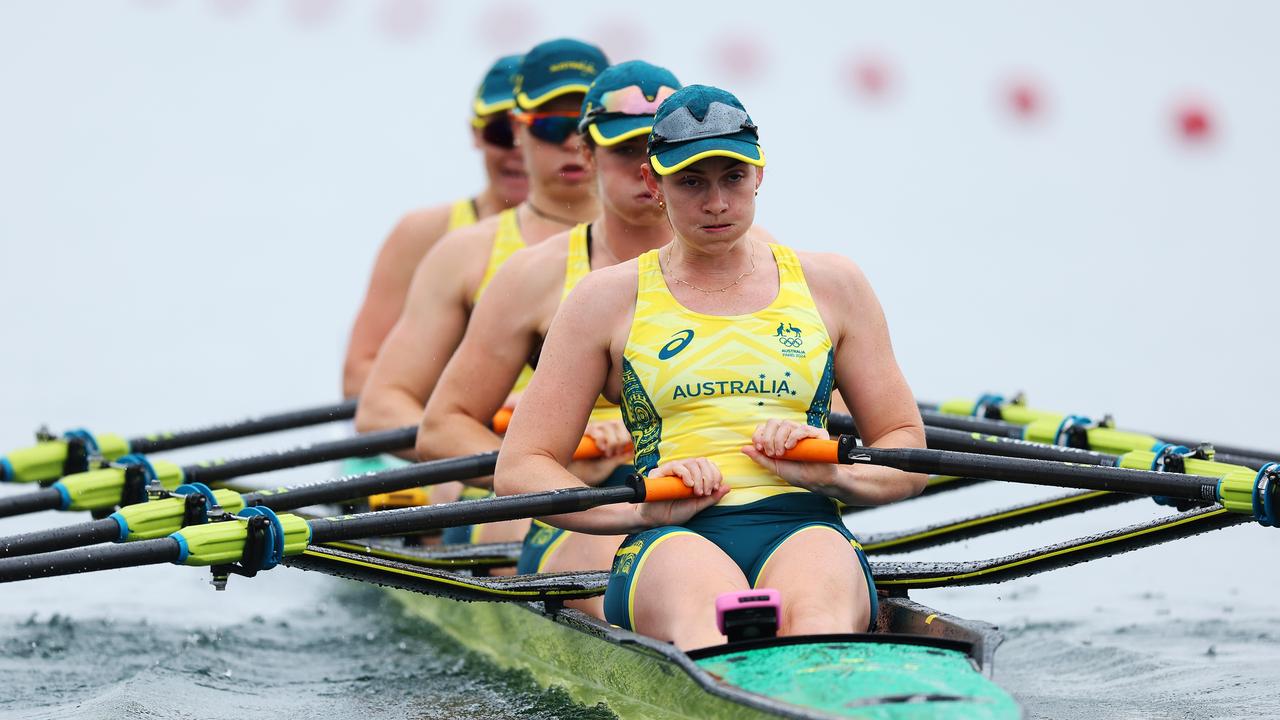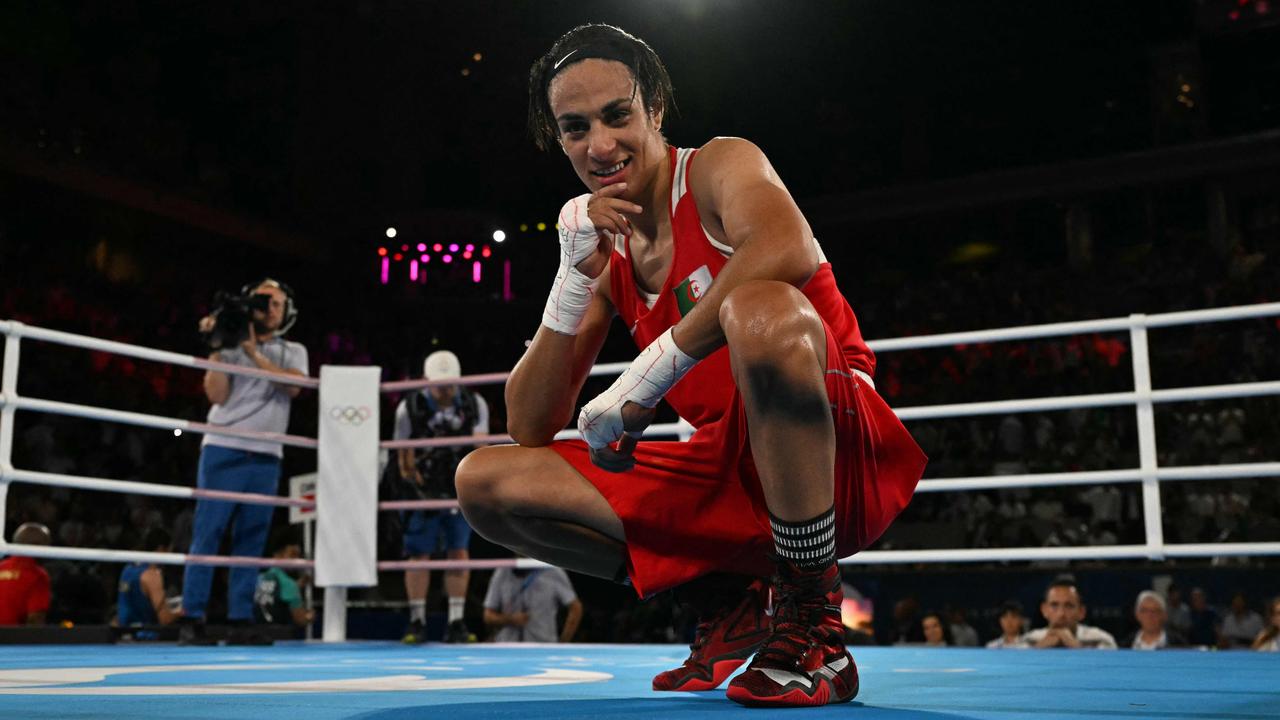Tokyo Paralympics 2021: Australians face heat and Covid risks
Aussie athletes heading to Tokyo have already faced an immense battle just to get to the Paralympics. Now, they are bracing for life-threatening heat and Covid complications as well.

Australia’s Paralympians have put in a gold medal performance just to get to the Games this year.
Covid-19 border restrictions have robbed the athletes of the chance to acclimatise to the brutal heat and humidity in Tokyo by restricting their arrival into Japan to five days before their events.
Local lockdowns also stopped many of them travelling to northern Queensland to acclimatise, and prevented some national teams from getting together to train.
And the virus itself poses an enormous risk to athletes who have compromised lungs and immune systems.
Despite these hurdles, 174 athletes will don the green and gold this year, along with eight guides and ramp assistants.
Chief medical officer of the Paralympic team, Pip Inge, said COVID had added an “extra layer of complexity’’ to be dealt with by athletes, and the 168 officials who will accompany them.
“The challenges are significant,’’ she said.
“We have athletes who have a range of medical conditions.’’
The intense heat and humidity in Tokyo has proved difficult for able-bodied athletes to contend with, and the Paralympians are arriving later this month, when conditions will be even more oppressive.
Dr Inge said some Paralympian athletes were not able to thermoregulate their body temperature, meaning they found it very difficult to manage the heat, particularly those with spinal injuries.
Border rules have banned all Olympics and the Paralympics athletes from arriving into Japan more than five days before their events.

Dr Inge said Tokyo2020 was on track to be the hottest Olympics and Paralympics ever.
“It’s on the radar for a lot of sports. It’s a particular challenge for the athletes from the southern states,’’ she said.
“Heat management is a challenge for us at the best of time.’’
Some athletes were going from a “Melbourne winter to a Tokyo summer. It’s a significant difference.’’
The team had abandoned their plans to hold a pre-staging camp in the Japanese city of Kobe to acclimatise, and had instead planned to get used to hot and humid conditions by training together in far north Queensland.
However, border restrictions had prevented most athletes from Victoria and New South Wales from travelling to join their teammates.
Ryley Batt, the captain of the wheelchair rugby team and co-captain of the Australian Paralympic team, said he was confident the processes put in place would keep the athletes safe.
“The majority of our team struggle to control their body temperature,’’ he said.
“But we’ve done it before. Rio was very hot, and we’ve played in other places in the world where it was hot.’’
Batt said the team would use ice vests, icy-poles, slushies, fans, ice baths and cold towels to help them manage the heat.

Based in Port Macquarie, Batt has been unable to train with his teammates in Melbourne, and will fly down to Melbourne for a single night before the team departs on a charter flight to Tokyo on August 18.
He said COVID was “definitely a risk factor’’ but the team had held extensive meetings with officials and were confident every effort had been made to keep them safe.
“No-one is forcing us to go. We want to go and compete. We’ve been training for five years,’’ he said.
The wheelchair rugby team, known as the Steelers, won gold in Rio and London and silver in Beijing. Tokyo will be Batt’s fifth Olympics.
Dr Inge said ideally, athletes would have had two weeks to acclimatise, or even 10 days. Instead, they will have a maximum of five days.
The second serious concern for the athletes is the risk of contracting COVID. Some Paralympians are extremely vulnerable, and while every member of the team is vaccinated, face a potentially life-threatening risk if they become infected.
“We have certain athletes that don’t have the ability to clear their lungs,’’ Dr Inge said.
“Others are immune-compromised.’’
Team officials had decided the Paralympians won’t use the communal dining hall at the Olympic village, to mitigate the COVID risk.
But unlike able-bodied athletes, many will not be able to avoid enclosed spaces, as they will be required to use lifts as they are not able to take the stairs.
“These are day to day things to be managed,’’ Dr Inge said.
Three-time Olympian Tyan Taylor, 31, a winger with the goalball team, is relocating from her home in Sydney to Newcastle due to the lockdown.
She said she needed to move to ensure she was able to travel to Melbourne for a staging camp, before heading to Tokyo on August 18.
A vision-impaired athlete, Taylor doesn’t experience the same difficulties as other members of the Paralympic team with regulating her body temperature, but said she was expecting it to be hot and humid.
“I’m aware of the COVID risks,’’ she said.
But she was comfortable that Paralympics Australia had put the team “in safe hands.’’
Getting the athletes home to Australia after the Games is also proving problematic, as they are required to quarantine for 14 days and many need special rooms that can accommodate their wheelchairs and other mobility aids.
Some also need extra levels of care, but caps on numbers mean some athletes are sharing carers.
The Paralympic committee is requesting home quarantine be considered for some of the athletes instead of requiring them to do 14 days in a hotel.
The Paralympic Games run from August 24 to September 5.






